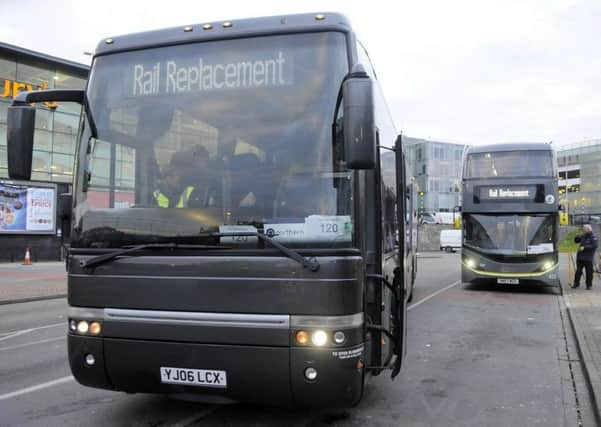Blackpool bus services ‘affected by rail strikes’


Passengers took 684,000 fewer bus trips in the resort last year compared to the year before, figures from the Department for Transport said.
Between April 2017 and March 2018, there were 9.35 million passenger journeys, 6.8 per cent less than in the previous year.
Advertisement
Hide AdAdvertisement
Hide AdBlackpool Transport’s finance and commercial director James Carney said the slight drop could be blamed on strikes affecting Northern Rail services from Preston.
Mr Carney said: “The decline we experienced is disappointing but part of the reason is that there were fewer public transport users who came to Blackpool during the Preston railway blockade. More people arrived in the town centre by car, some residents transferred to using the tram during the time that the Promenade was closed, and the repair of Squires’ Gate Bridge meant a lengthy diversion for services seven and 11.
“While town centre improvements affected customers when we made changes to bus stop locations, we were able to mitigate this issue by providing extra communications and on-street wayfinding.”
He said Blackpool had fared better than other north west towns, including Warrington and Halton, where public transport use fell by 10 per cent and 11 per cent respectively.
Advertisement
Hide AdAdvertisement
Hide Ad“The upgrade of the fleet, so that two thirds of our buses are on average two years old, is probably the reason why our losses were lower than might have been expected,” he said. “An independent survey recorded that 88 per cent of our customers continue to be satisfied with the bus service.”
Bus use has declined steadily over the last eight years, with the number of passenger journeys in Blackpool dropping by 27 per cent since 2009-10.
Across England, there were 85 million fewer bus journeys last year, a drop of 3.2 per cent outside London and 0.7 per cent in the capital.
Bus fares across England have risen by 71 per cent since 2005. Since then, bus operators’ revenues have increased by almost £1.5bn.
Merseyside had the most passenger journeys per resident in the North West, while Cheshire East had the fewest.
The number of concessionary journeys taken decreased by per cent.